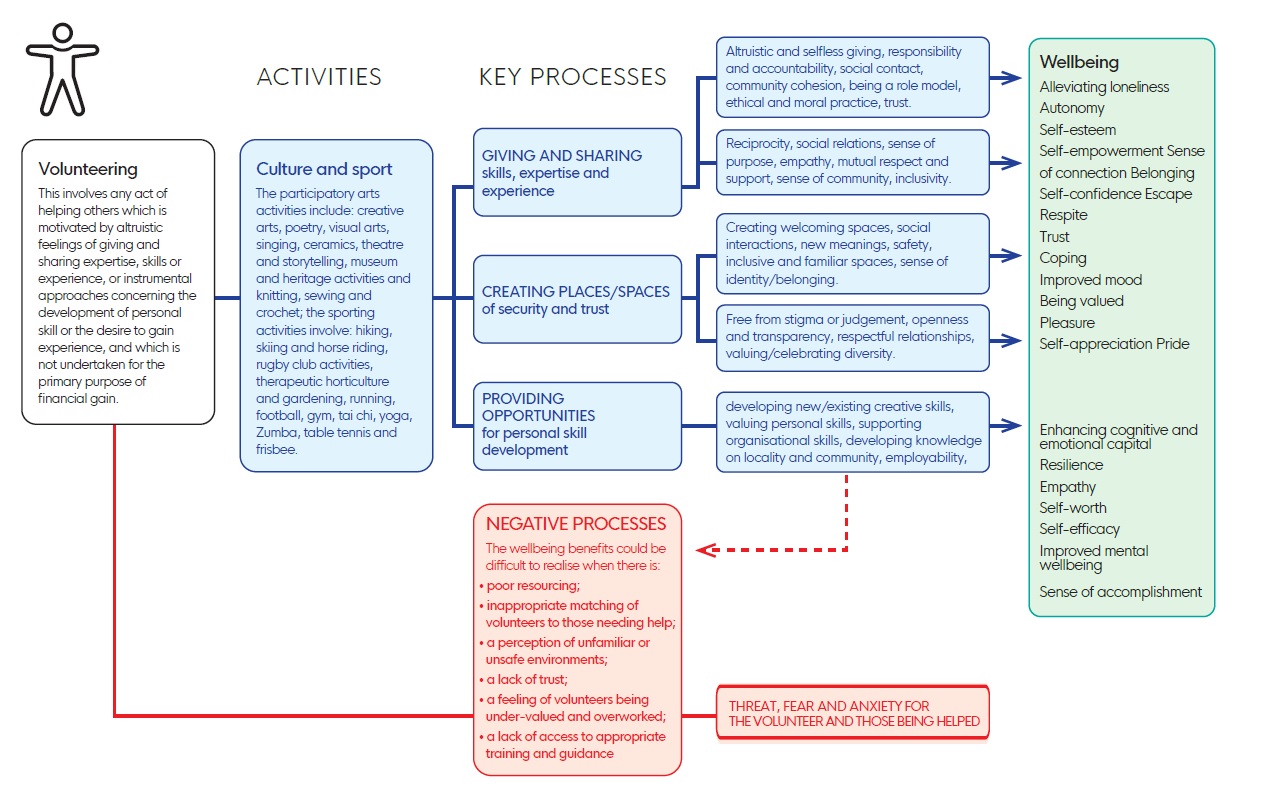Volunteering in culture, sports, and arts: what matters to reduce loneliness?
Today we publish Participatory arts, sport, physical activity and loneliness: The role of volunteering. This qualitative review creates a map of what matters when planning, designing, and managing volunteer programmes in the arts, sports, or culture sector. Importantly, it also identifies important negative outcomes and risks in volunteering in these sectors, and draws out the characteristics of ‘spaces of security and trust’ that help achieve wellbeing
This review complements our recent rapid evidence review on volunteering and wellbeing. Both the rapid evidence review and today’s qualitative review tell us that:
- volunteering is linked to higher wellbeing in volunteers, including key outcomes such as self-esteem and stronger sense of purpose
- volunteering can lead to improved social connection, sense of belonging, and trust, and reduced loneliness in volunteers
- a key mechanism for achieving these wellbeing outcomes is sharing and developing skills and knowledge
- good outcomes are dependent on the volunteer experience: especially whether the volunteer feels appreciated and supported
Key findings
- There is promising evidence that volunteering can improve wellbeing and alleviate loneliness in participatory arts, sport and physical activity.
- This review shows that volunteering can enhance wellbeing and/or reduce loneliness when taking part in participatory arts, sport and physical activity by:
- giving and sharing skills, expertise and experience
- creating places/spaces of security and trust
- providing opportunities for personal skill development.
- The volunteering role can sometimes be challenging if:
- the helper-helped relationship is not well-matched
- resources for long-term volunteering are lacking
- volunteers feel undervalued and without preparation and guidance.
The process map below shows how volunteering influences wellbeing and loneliness through participation in cultural and sporting activities.

Evidence call on loneliness - submit your reports
We are looking for evidence produced by any organisation that will contribute to our updated conceptual review on loneliness for understanding loneliness and wellbeing across the life-course. If you didn't submit to our previous call for evidence on loneliness, now is your chance.
